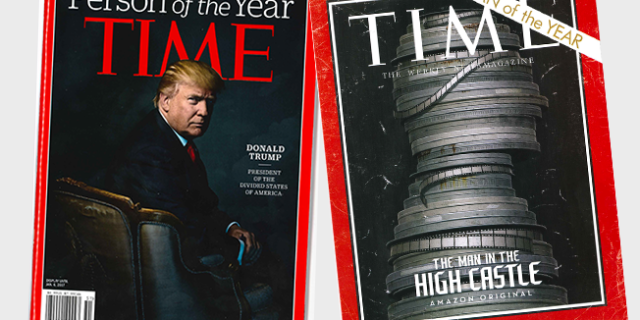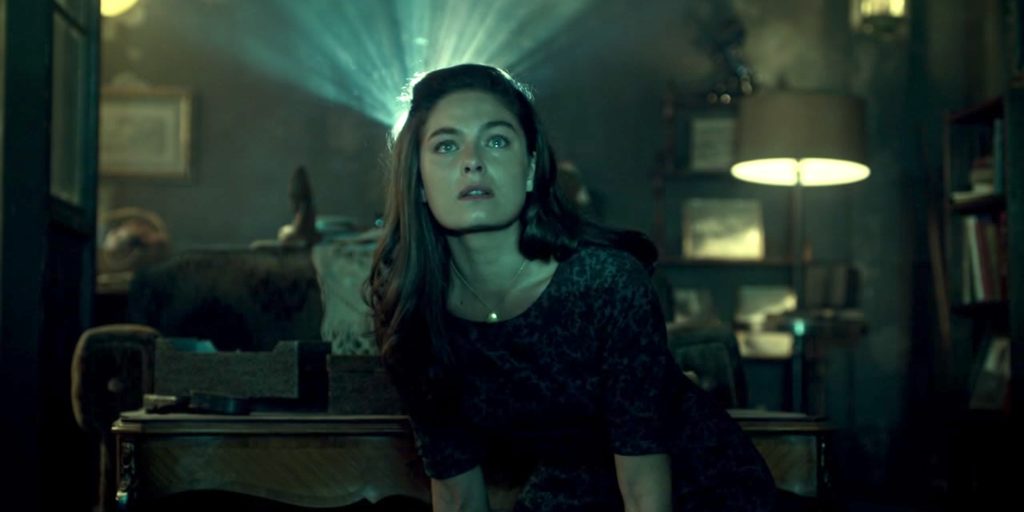Last week, Time revealed president-elect Donald Trump as its Person of the Year with the caption, “President of the Divided States of America”—resulting in about as much controversy and online arguments as you’d imagine. But what if the US was literally divided? This is the concept behind Amazon’s original series, The Man In The High Castle—Philip K. Dick’s vision of America if the Nazis had won World War II and occupied the country.
Within each of Trump’s Person of the Year issue is another six-page issue of Time magazine dated 1963 (set during the events of the TV series) paying tribute to “The Man In The High Castle.” Inside is an article that outlines this mysterious figure and how his films cause a stir among American citizens by providing hope for a world other than the dystopian reality they currently endure.
“Since its defeat in 1947, the United States of America has been ruled by the victorious Axis powers; Germany in the east, Japan in the west,” the article reads. “But one man is shaking these foundations with his mysterious films. Who, we ask, is he?”

The idea of America under Nazi rule is disturbing enough, but Amazon hasn’t been shy with its controversial marketing efforts. Last year, subway commuters in New York were surprised to find one car decked out with a Nazi version of the American flag, as well as a stylized flag inspired by imperial Japan. Residents were so disturbed by the imagery that Mayor Bill de Blasio requested they be removed and Amazon complied within hours.
For season two, Amazon has released a billboard in New York City showing the Statue of Liberty making a Nazi salute, which has been met with a similar amount of controversy and outrage—particularly during this time of political strife. The premise behind The Man In The High Castle is meant to disturb American viewers who might take their freedom for granted, while inspiring human resilience with the slogan, “The future belongs to those who change it.”
The show is, after all, about an underground resistance. For Holocaust survivors and their families, however, the Nazi imagery hits too close to home but when challenged about the show’s controversial advertisements, Amazon defends them based on the show’s narrative.
“Season two of The Man in the High Castle, based on Philip K. Dick’s acclaimed novel, continues the journey into an imaginary, fictional world that explores the ‘what ifs’ of an alternate history in which America lost World War II,” Amazon explained in a statement. “Season two debuts December 16 and if you’re interested to see what an alternate world could look like if history had gone another way, you should watch the show.”

